Bottom Line
The Kershaw Leek pocket knife is among our top picks for the best pocket knives and has proven itself as a worthy companion for everyday carry, work, or outdoor settings. It has a sharp 3-inch blade and a slim design (weighing only 3 oz.), making it highly portable. Although lightweight, the Leek is highly versatile and functions well for tasks ranging from simple cutting to chopping vegetables and even intricate whittling.
The assisted opening mechanism allows quick, one-handed access but has a tip-lock feature that keeps the blade closed when not in use. Although it is a high-performing knife, there are still some drawbacks. The thin blade tip may not hold up to more rugged jobs around camp or the workbench, and neglecting maintenance, especially in a wet climate, can lead to rust or corrosion of the blade. Despite these minor drawbacks, the Leek delivers excellent performance and is valuable for those needing a dependable knife for daily tasks. If you want to see what other options we love, check out our guide to the best pocket knives.
Quick Specs
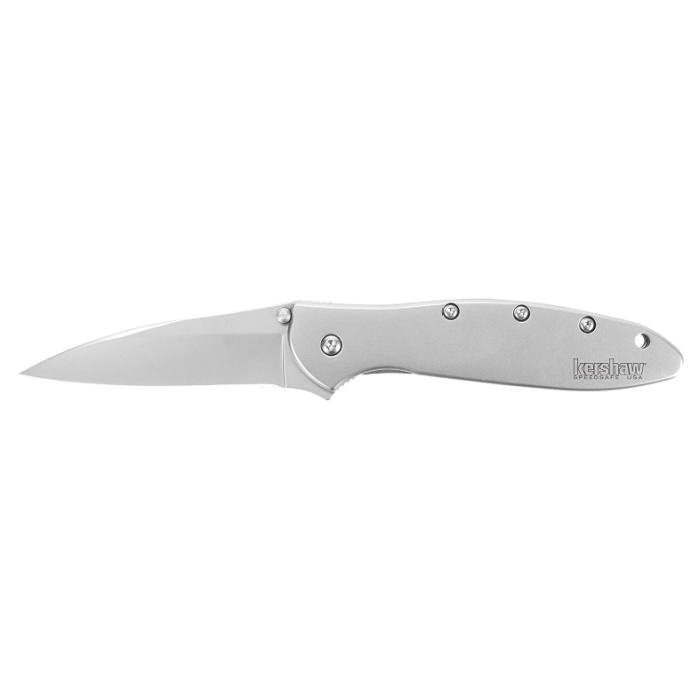
Kershaw Leek
Best Pocket Knife Overall
Price:
$61
Measured Weight:
3 oz.
Blade Length:
3 in.
Overall Length:
7 in.
Blade Material:
14C28N stainless steel
Pros
- Very sharp
- Slim and compact
- Easy to open with one hand
- Enhanced safety features
- Secure hand feel
Cons
- Blade tip is a bit thin for rugged jobs
- Can develop rust if not well-maintained
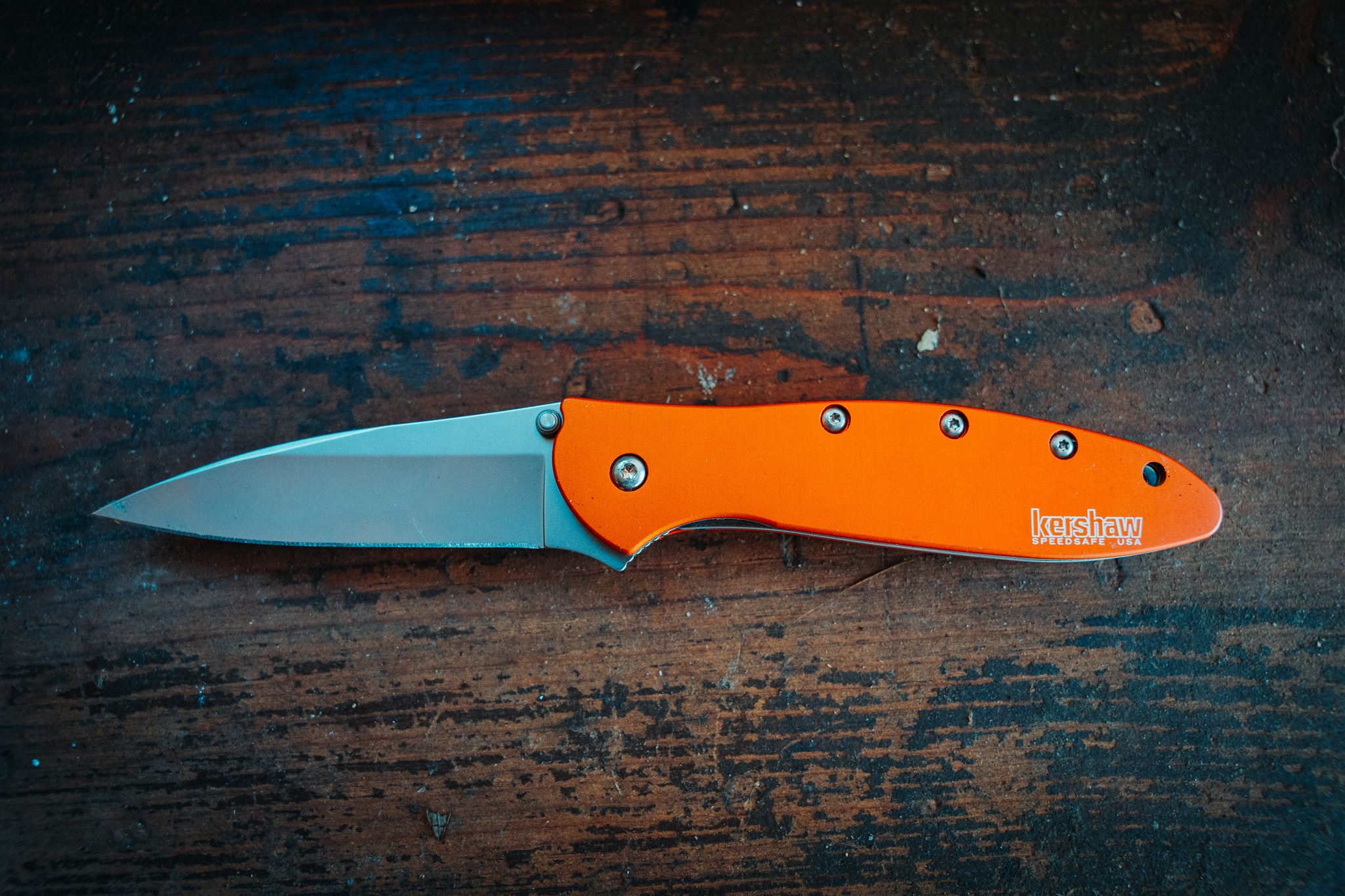
Build Quality
From the moment you handle the Kershaw Leek, you can see the attention to detail paid to its design and construction. It excels in both aesthetic appeal and functional durability. During our testing, we inspected the knife, both new and after extended use, evaluating the fit and finish. We found minimal signs of wear after prolonged use, indicating that the Leek can efficiently perform daily tasks while requiring minimal maintenance.
Its slim profile and lightweight design make it easy to carry, but it is still large enough for the average adult to hold comfortably. The assisted-opening feature, deployable via thumb studs or a spine flipper, adds to its user-friendly appeal. We’ve tested the Leek in backyard, workbench, and camping settings, and it consistently delivered reliable performance.
Blade Retention & Stability
The Kershaw Leek maintains sharpness through extensive use and effectively handles versatile cutting tasks. During our testing, we subjected the knife to a range of materials, including cardboard, rope, paper, and fresh produce. The blade is durable, cutting cleanly without significant dulling, even during extended cutting tasks and over several weeks. The steel blade is engineered to balance edge retention and ease of re-sharpening.
Our tests did observe some minor edge rolling after initial use, which can occur when a blade is ground to a very acute angle. While this did not significantly impact the knife’s overall performance for routine tasks, it is good to keep it in mind during more demanding cutting jobs. A quick honing session can restore the blade, so remember to keep up with proper maintenance for optimal performance. Regarding stability, the Leek performed well under pressure, showing no noticeable wobble during cutting tasks.
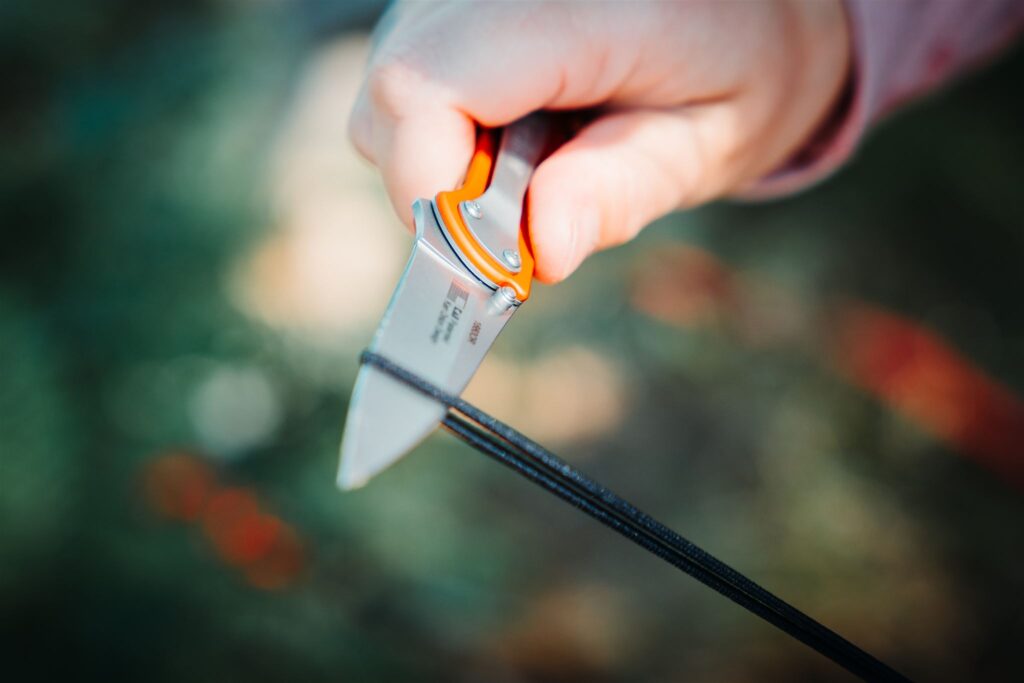
Ergonomics & Grip
The Kershaw Leek offers a comfortable and secure grip that enhances usability. The contoured handle design allows for a natural fit in the hand, making it easy to control in all cutting positions. During our testing, we employed different grip styles—regular, reverse, and pinch grips—while performing various cutting activities. The knife remained comfortable and stable, especially for precision work.
While the Leek’s slim profile is ideal for pocket carry, its handle thickness may be a drawback during extended use. Prolonged cutting can lead to hand fatigue, especially for tasks requiring significant force. Despite this, the handle design does an excellent job of preventing slipping, even when handling slippery materials like food. The assisted-opening mechanism, activated by either a thumb stud or an index finger flick, further enhances accessibility and ease of use.
Additionally, the knife features a versatile pocket clip that allows for tip-up or tip-down carry. Unfortunately, it is only designed for right-handed users, and the anchor points are not mirrored for left-handed carry. This decision, likely made for aesthetic reasons, limits accessibility for some users.
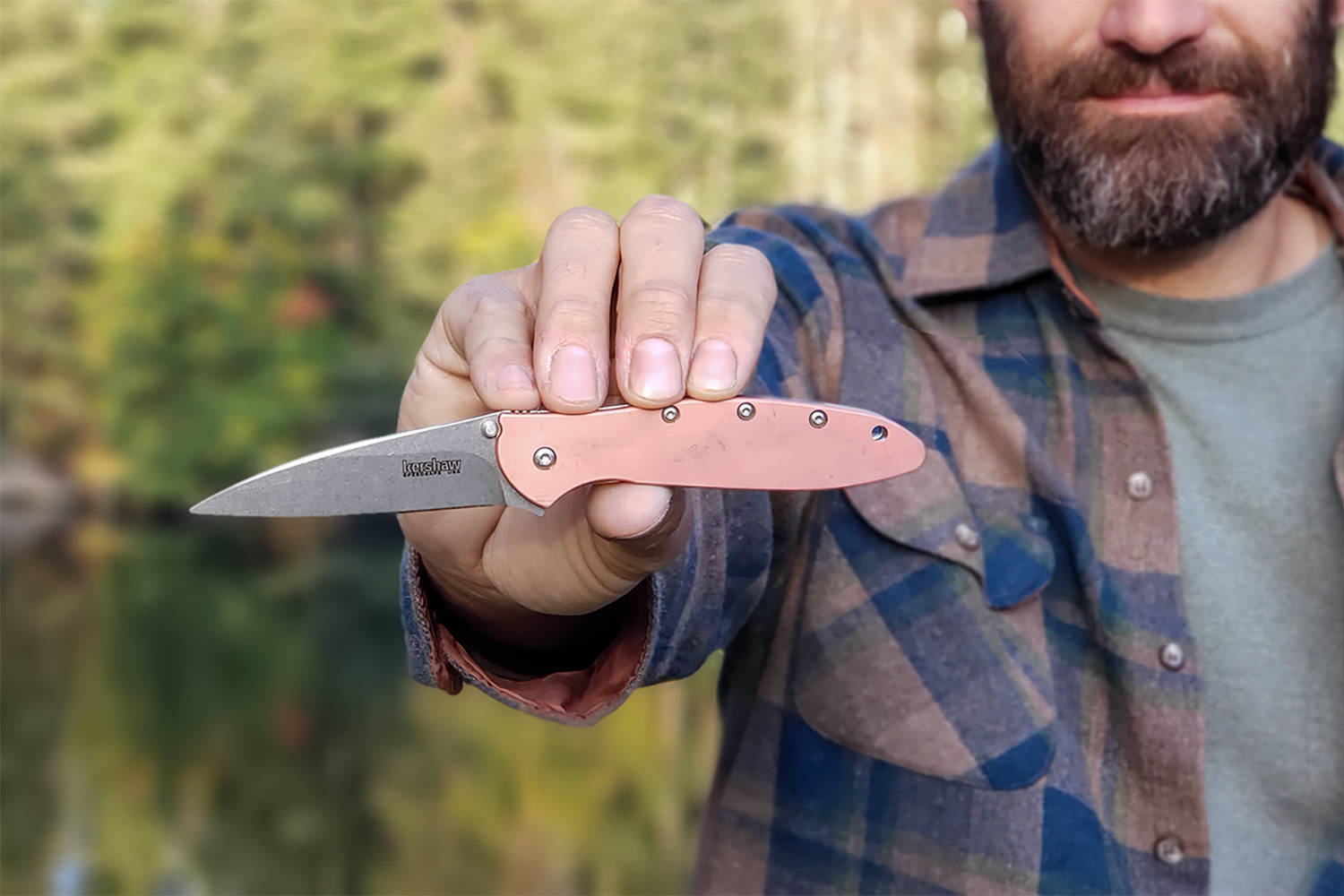
Corrosion Resistance
In our testing, we exposed the knife to a saltwater solution to simulate real-world conditions that knives might encounter, especially when used in humid or marine settings. After this exposure, the Leek’s 14C28N stainless steel blade showed minimal signs of corrosion. It isn’t completely impervious to rust and deterioration, but the blade has corrosion-resistant properties that enhance its performance.
Developed through a partnership with a Swedish engineering firm, the 14C28N alloy steel offers excellent resistance to corrosion. A corrosion-resistant blade is advantageous for users who use their knives in wet conditions or can’t always wipe them down after use. While no knife is entirely immune to corrosion, the Leek’s resistance is noteworthy compared to other knives in its category. It scored an eight in our corrosion resistance metric, but proper maintenance—such as regular cleaning and oiling—can enhance its lifespan.
Locking Mechanism
The Kershaw Leek has a reliable liner lock to keep the blade in place during use and a unique safety feature to keep the blade closed during transport. We tested the locking mechanism’s strength and reliability by repeatedly opening and closing the knife and using it under varying stress levels. The liner lock held firm and we were confident the blade would not accidentally disengage while cutting. However, we found that the mechanism could be stiff and require more effort than expected to close again.
We also assessed the lock’s performance when the knife was wet or dirty. Despite these conditions, the liner lock didn’t budge, offering safety and security throughout our tests. The knife design includes a slider mechanism that locks the blade closed, preventing unintended openings during transport. Pay attention when slipping the knife in your pocket because this feature can engage.
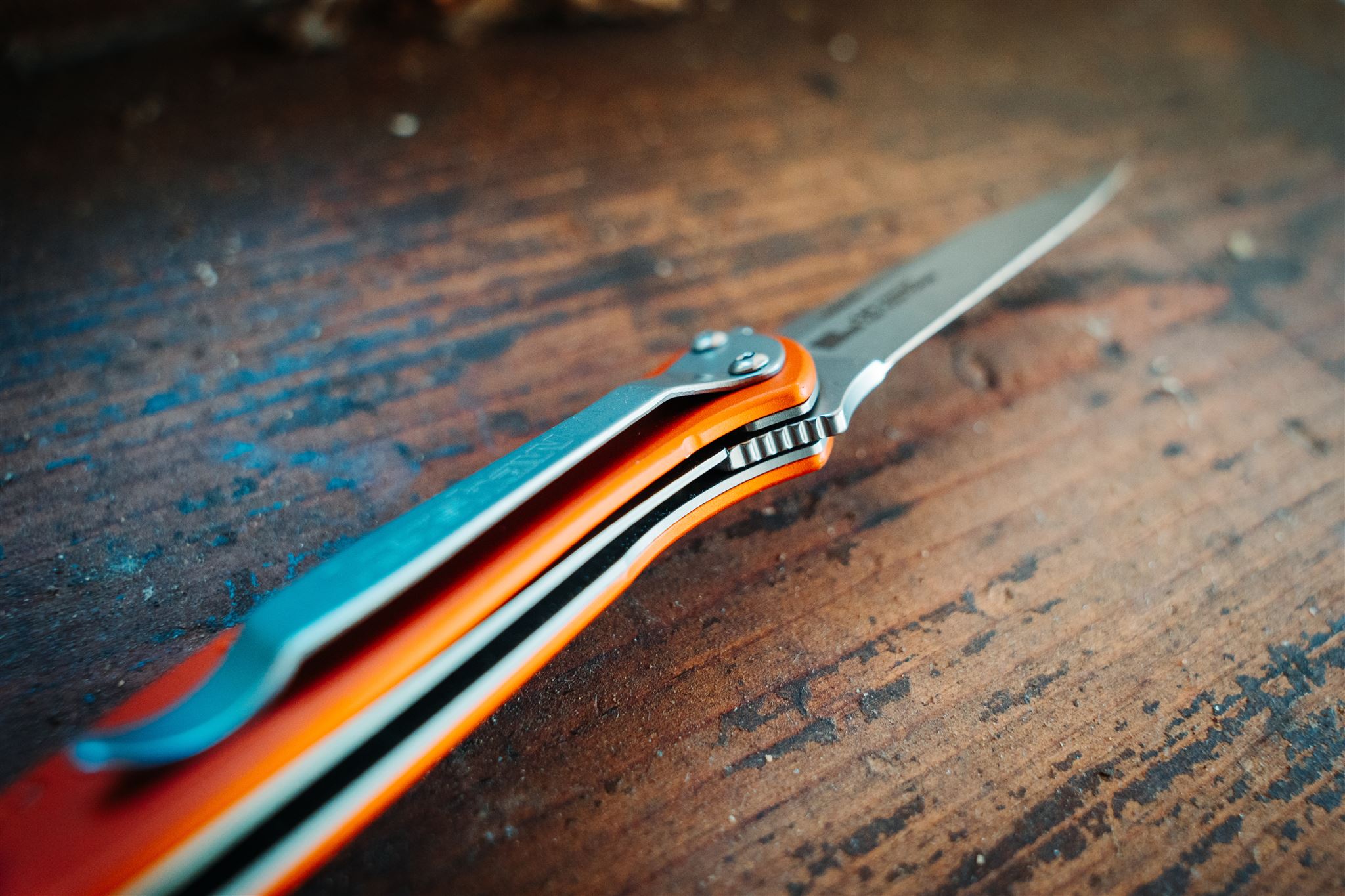
Weight
The Kershaw Leek weighs just 3.1 oz, which is pretty average for a pocket knife of its size. This balance of functionality and portability is particularly appealing for everyday carry, as the knife virtually disappears in your pocket. During our testing, we appreciated how the slim profile allowed the Leek to be easily accessed without adding bulk to our pockets.
The thin handle design does raise some ergonomic concerns for extended use and if you have larger hands. A more rounded handle profile might enhance comfort during long cutting tasks, but for typical everyday scenarios, the Leek is comfortable enough. While backpackers might seek even lighter alternatives for most daily tasks, the Leek offers an excellent compromise between weight and usability. It is strong enough for frequent use without weighing you down.
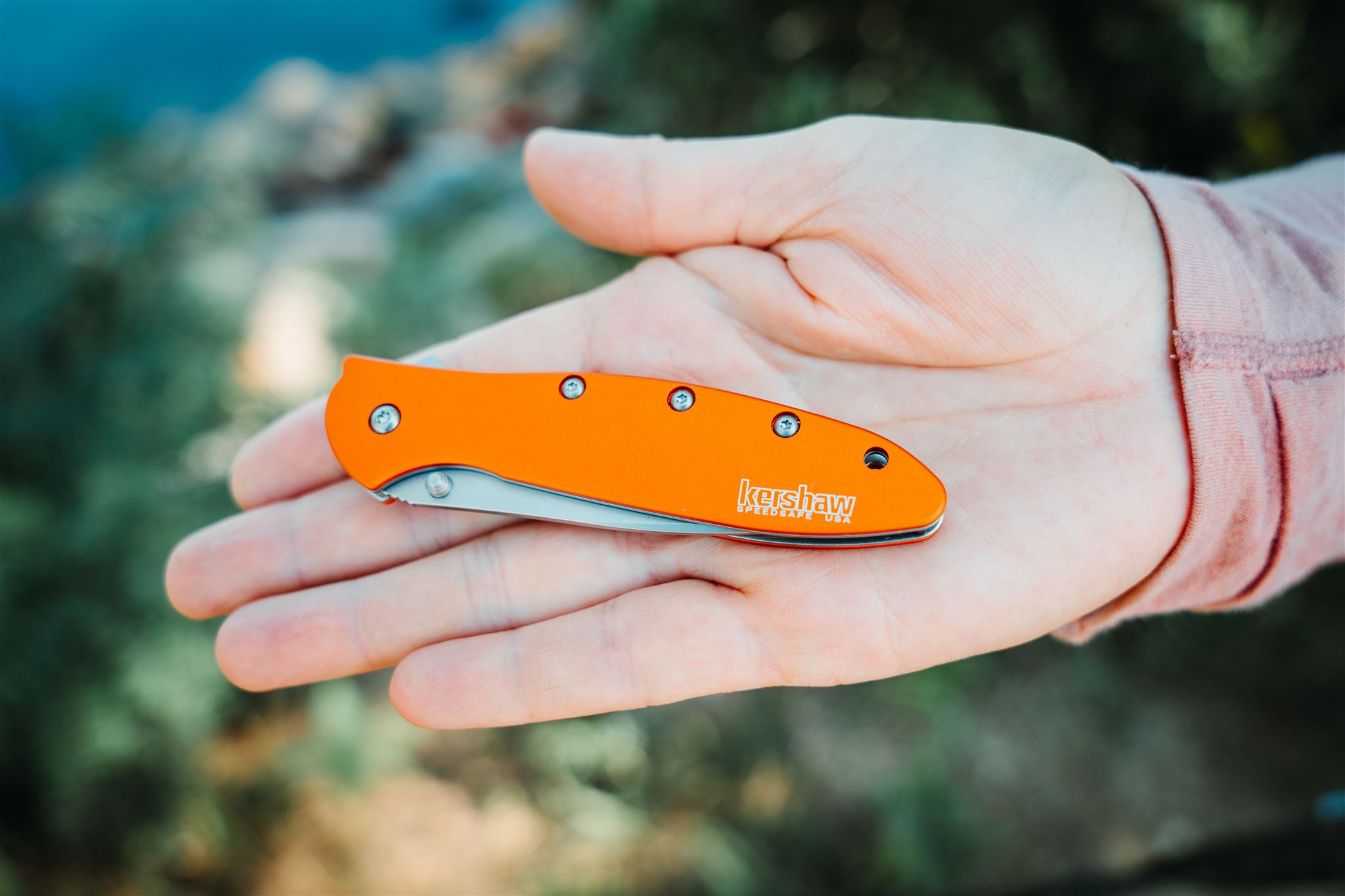
Should You Buy the Kershaw Leek?
The Kershaw Leek is an excellent choice for anyone seeking a reliable, everyday carry knife. Its lightweight design and slim profile make it ideal for those who prioritize portability. It is well-suited for everyday tasks like cutting through packaging, food prep, or other detailed work. It is also an excellent option for casual users and outdoor enthusiasts.
However, if you anticipate needing a knife for heavy-duty tasks or extended use, you might find the Leek’s thin blade and handle uncomfortable. And if you’re looking for something ultralight, this isn’t the best option. Still, the Kershaw Leek offers excellent value for its quality and is designed for anyone looking for a dependable, aesthetically pleasing knife for daily use.
What Other Pocket Knives Should You Consider?
Benchmade Bugout 535 Review: The Benchmade Bugout 535 is a knife made for those who appreciate the Kershaw Leek’s sleek design but are looking for an even lighter knife option. Weighing just 1.9 ounces, the Bugout offers a compact, easy-to-carry profile ideal for EDC or as a consideration for backpacking. Unlike the Leek, the Bugout features a manual lock that keeps fingers clear during closure to enhance safety.
Opinel No. 8 Review: If budget is a concern, the Opinel No. 8 provides a classic, reliable alternative. It is lightweight (1.5 ounces), making it perfect for outdoor activities like hiking, but it lacks a pocket clip. The comfortable beechwood handle and secure collar lock do look nice, but the collar lock requires two hands use, which can be annoying at times. Although it may not be as sharp as the Leek initially, it’s easy to sharpen and maintain.
Spyderco Para Military 2 Review: For those seeking a high-performance option, the Spyderco Para Military 2 is a premium alternative. It has a sharp, durable blade, and is much larger than other options with a blade length of 3.41 inches. The four-position pocket clip adds versatility. Although it’s heavier and bulkier than the Kershaw Leek, the grip and size of the handle make it easier to maneuver for more agressive tasks.
